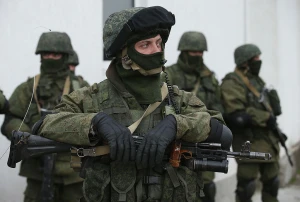
U.S. intelligence links Kremlin to killings of Putin’s critics abroad
Russian intelligence agencies carried out a series of assassinations of the Kremlin leader's political enemies, personally authorized by Putin
This is stated in a report by the U.S. National Intelligence Directorate, which was partially declassified at the request of a Bloomberg journalist.
The document lists a series of assassinations that, according to U.S. intelligence, Russian intelligence agencies have been carrying out for years. Putin personally authorized these killings. The publication adds that U.S. intelligence officials, speaking anonymously, had previously claimed that some mysterious deaths over the years were likely part of Putin's campaign to eliminate his enemies. Now, these assumptions have received documentary confirmation.
According to the report, "the first clear case" of Putin ordering an overseas assassination occurred in 2004 in Qatar. There, two Russian military intelligence officers were convicted for the murder of Zelimkhan Yandarbiyev, the leader of the self-proclaimed Chechen Republic of Ichkeria, who had been recognized as a terrorist by the United States and the United Nations.
The next on the list is former FSB officer Alexander Litvinenko. He died of radiation sickness in London in 2006 after being poisoned with radioactive polonium. Following this incident, U.S. intelligence concluded that "Russia has the capability to kill individuals using chemical and biological agents" and possesses the means to track dissidents and defectors.
Another case mentioned is that of Russian businessman Alexander Perepilichny. He died in the United Kingdom in 2012, shortly before he was set to testify in a money-laundering case in Europe involving Russian officials. U.S. intelligence believes he was killed using a biological toxin, although British police investigating Perepilichny’s death did not find sufficient evidence to confirm this.
The list also includes other high-ranking figures whom Putin is believed to have ordered killed. Among them is Alexander Bednov, a Luhansk militant and leader of the Batman unit. Bednov's armored bus was ambushed and fired upon by armed men. The Russian occupation prosecutor's office claimed the attack was because Bednov and his subordinates refused to comply with the demands of the Luhansk People's Republic (LNR) terrorist group. However, the true reason was likely Bednov's disagreements with then-LNR leader Igor Plotnitsky. U.S. intelligence suggests that Bednov and several other prominent leaders of the Donetsk and Luhansk separatists were killed on Kremlin orders to tighten Russian control in the region.
The report's authors note that the Kremlin uses intelligence agencies abroad to eliminate those it perceives as threats to the regime. They also state they have evidence of the Russian leadership's involvement in other killings of Putin's opponents, though the data is less complete. Intelligence experts believe such assassinations are highly likely to continue in the future.
The Russian Embassy in Washington did not respond to Bloomberg's request for comment on the matter.
- News














































